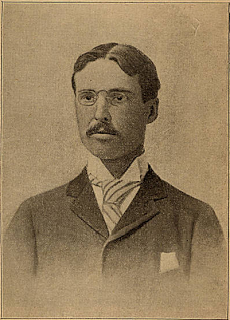Carlyle Harris
Carlyle Harris was a notable figure in the late 19th century, primarily known for his involvement in a highly publicized murder case that led to significant discussions about ethics in medicine, the use of pharmaceutical drugs, and the legal system of the time. His case is often cited in studies related to forensic science, legal history, and the sociology of crime and punishment.
Background[edit | edit source]
Carlyle Harris was a young medical student in New York City during the late 1800s. His life took a dramatic turn when he became romantically involved with Helen Potts, a young woman from a well-to-do family. Their relationship, initially hidden from Potts' family, eventually led to a secret marriage. The controversy surrounding Harris primarily stems from the subsequent death of Helen Potts, which was attributed to poisoning by morphine.
The Case[edit | edit source]
The case against Carlyle Harris began after the sudden and mysterious death of Helen Potts, who was found dead under suspicious circumstances. An autopsy revealed the presence of a lethal dose of morphine in her system. Harris was accused of poisoning Potts, allegedly having administered the morphine under the guise of headache pills. The prosecution argued that Harris's motive was to rid himself of Potts so that he could pursue other romantic interests, highlighting his alleged affairs with other women.
Trial and Execution[edit | edit source]
The trial of Carlyle Harris was a sensation, capturing the attention of the public and the press alike. Harris's defense argued that Potts might have accidentally overdosed or taken her own life, but the evidence, as presented by the prosecution, swayed the jury. Harris was found guilty of murder and sentenced to death. His execution, carried out in the electric chair, was a landmark event, further sensationalizing the case and sparking debates over the death penalty, the ethics of punishment, and the role of the media in the judicial process.
Legacy[edit | edit source]
The Carlyle Harris case left a lasting impact on several fronts. It highlighted the need for more stringent regulations in the prescription and distribution of pharmaceutical drugs, leading to reforms in the medical and pharmaceutical industries. Additionally, the case is often discussed in the context of the death penalty and its application, particularly in cases with significant public and media involvement. The role of the press in shaping public opinion and potentially influencing the outcome of legal proceedings was also a point of contention and discussion following the trial.
See Also[edit | edit source]
Navigation: Wellness - Encyclopedia - Health topics - Disease Index - Drugs - World Directory - Gray's Anatomy - Keto diet - Recipes
Search WikiMD
Ad.Tired of being Overweight? Try W8MD's physician weight loss program.
Semaglutide (Ozempic / Wegovy and Tirzepatide (Mounjaro) available.
Advertise on WikiMD
WikiMD is not a substitute for professional medical advice. See full disclaimer.
Credits:Most images are courtesy of Wikimedia commons, and templates Wikipedia, licensed under CC BY SA or similar.
Contributors: Prab R. Tumpati, MD

